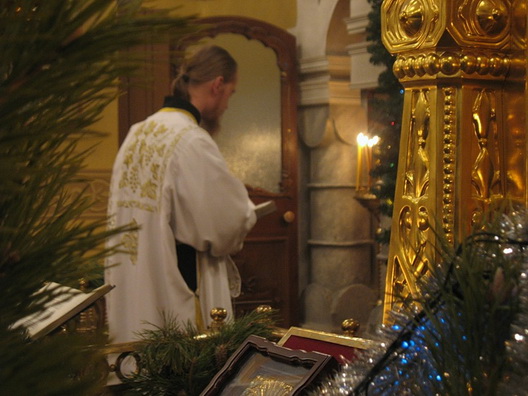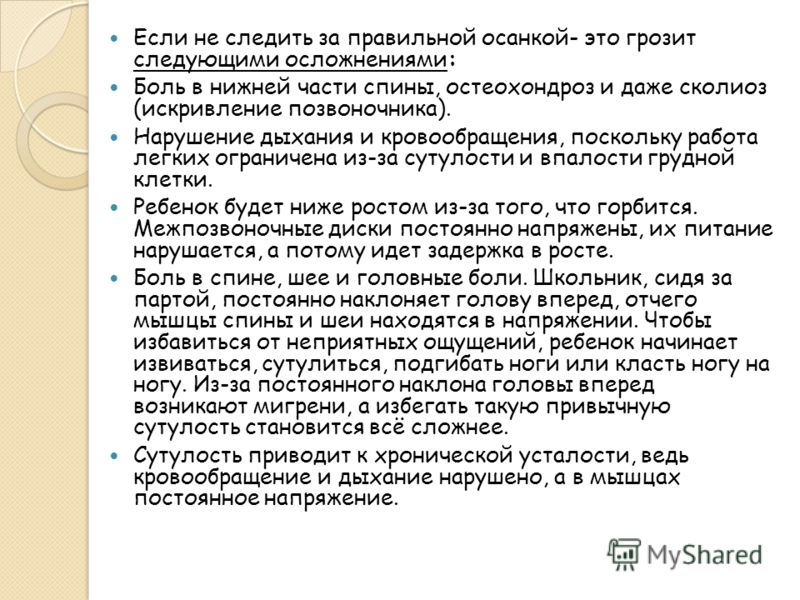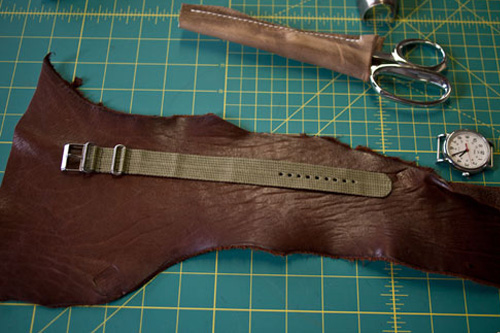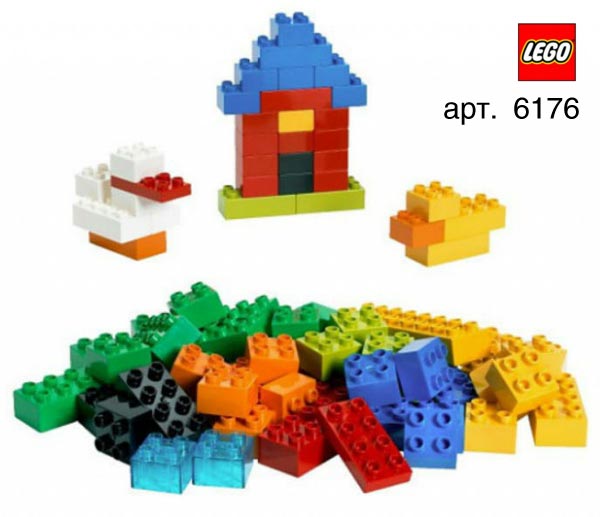Category Archives: Prayer for Health
- this is a special (i.e. special) prayer during forty Divine Liturgies. Why is such a time period chosen for such prayer? We know from Holy Scripture and Tradition that often, in order to achieve a certain spiritual result, a feat is needed that lasts exactly 40 days. Here is a secret. We also know from patristic revelation that the soul of a deceased person on the fortieth day after death receives a determination of its fate at the private judgment of God. That is why we especially pray during this period. From the foregoing it follows that there is a point in continuous forty days of prayer. This prayer can be both for health and for the repose of the soul (if a person has died). For example, a young man is seriously ill. Relatives ask the Church for a special prayer for him and order a magpie for health in a church where daily services are performed or in a monastery. Before the end of magpie, a man left this world not without the will of God. In this case, relatives report this information to the temple and the remaining days of forty-mouth prayer goes on for the newly deceased. So the magpie is about health and repose. In our temple, in addition, you can order such a commemoration of health or repose for six months or a year. To this it is worth recalling that with God everyone is alive. We pray for the soul, for its salvation.
In some monasteries, the liturgy is not served every day, but there is a magpie and lasts exactly 40 liturgies, which can stretch for several months.
The question arises: Is it possible to submit notes for proskomidia and magpie for the Orthodox, who not only do not receive communion once a year, but rarely go to church at all?
Based on the strictness of church canons, it is really not supposed to give notes to the altar for such people, but if we were guided in our lives by all the strictness of the canons, then, probably, only a few would remain in the church. Now life has changed dramatically. It must be remembered that the ancient canons are a kind of ideal to which we must strive! But you need to look at things realistically and not get too strict, which is not appropriate in our already cruel world.
The Lord sees the heart of every person; not even a single fleeting thought can be hidden from Him. He knows both you and those people for whom you ordered a magpie, he also knows at whose request you did it. Can He really judge a person for someone else's sins only for the reason that the person fulfilled the request of his neighbor and ordered a demand for his relatives?
Only sectarians, heretics and conscious blasphemers who have clearly testified to their enmity towards God cannot be submitted for the liturgy.
In some monasteries and temples, everything in a row is not accepted. You cannot take on more than you can bear. In addition, this happens in places popular among pilgrims. There, the monks are simply not able to pray for the multitude of people who are being requested. Therefore, they ask whether a person is churched, “is he his own, does he live the life of the Church.” Sometimes this flow is regulated by setting a relatively high donation amount. Then the pilgrim will not write down everyone in a row, but will actually write down those who are in great need of prayer.
Therefore, it is better to find out from friends who these people are, about whom they ask to order a magpie. Frivolity has no place here.
The Lord himself commanded us to pray and help each other: “There is no greater love than if someone lays down his life for his friends.” (John 15:13) If we, Orthodox, do not pray and help each other, through whom then will the Lord help us?
Two answers to similar questions by Archimandrite Raphael (Karelin)
Recently, in one of the monasteries, they refused to order a magpie “On the Health” of my relatives on the grounds that they do not go to church and do not receive communion, they offered to write them down for the Psalter. Please explain what is the spiritual difference between these prayers, and are there any rules for whom to pray for?
Archimandrite Raphael answers:
The particles removed from the prosphora on the proskomedia mark the souls of the people being commemorated. At the end of the liturgy, the particles fall into the chalice with the Blood of Christ. At the same time, the priest says: “Lord, wash away the sins that were remembered here, by Your honest Blood.” Therefore, liturgical commemorations do not correspond to the state of people who do not go to church and do not repent. Reading the Psalms and prayers is a prayer order and rituals, and the liturgy is a sacrament ...
In our parish (village church) the trebs submitted for the proskomedia are read even at the litany (essentially disinterestedly). Meanwhile, many (in demands) are far from the Church, they do not even want to be prayed for (baptized, but apostate, sectarians, for example). isn't that a sin? Father is wonderful: kind and smart?
Archimandrite Raphael answers:
Alexander! … At the liturgy, only those Orthodox are commemorated who belong or belonged (departed) to the Church and are included in her inner life. At funeral services, it is permissible to commemorate baptized, but unchurched Orthodox, in the hope of their dying repentance. And at prayer services - baptized, but lost, with the aim of returning them to Orthodoxy. Their names can also be remembered when reading the Psalter. You should ask the priest to explain this to the parishioners, in order to avoid confusion ...

Sorokoust is a commemoration in a row at forty Liturgies. At the Liturgy, they pray for the health of the living and for the repose of the dead. Therefore, you can order a magpie both for health - for the living, and for repose - for the dead.
Sorokousts about health order not only about the sick, but also about healthy people - so that the Lord would keep them, help them in their good deeds and give them health of mind and body.
Prayer is not just words. It must be understood that when a person begins to pray, it is the same as that he declares war on the unclean. For your soul, or for the souls of others. Do you think they like it? Do you think they enjoy it? These prayers simply burn them, they do not give rest. And so they begin to take revenge. The one who prays or the one for whom they pray. Of course, their revenge is up to a certain limit, as much as the Lord allows. The Lord saves many from this evil, but not all. But a special scolding goes to real prayer books - monks, nuns, priests. So they don’t often accept notes in monasteries for everyone in a row. Submit notes, donate to the temple, this is also a matter of prayer. Therefore, it is better to talk with a priest about prayer. Don't take on too much. Pray for those for whom we are obliged to pray: for parents, for children, for a spouse, for godchildren. For the one we love. Perhaps, if you pray with love, then the person is protected, but if you dare to beg for everyone (sectarians, schismatics, fornicators, alcoholics, employees and neighbors), then ... you can overstrain. If a person prays for someone who is difficult to beg (about a person who has fallen away from the Church), then he must understand that he takes responsibility for this.

The Liturgy is the Great Sacrament. Therefore, perhaps, those who do not participate in the Liturgy cut themselves off from it, in some monasteries and some priests do not recommend commemorating it because they themselves are not ready for this commemoration? Indeed, according to the ancient Apostolic decree, those who did not take Communion for three weeks were considered excommunicated from the Church.
But not because the Church should not pray for those who have forgotten about it. The Church, like a loving Mother, waits and prays for her lost children.
Ordering requirements in the Holy Land
Sorokoust- daily prayer remembrance for forty days.
The number forty is a significant one, often found in the Holy Scriptures. The Jewish people wandered in the wilderness for forty years, the prophet Moses fasted for forty days, the Savior after His Baptism spent forty days in the wilderness, and after His Resurrection for forty days taught the Apostles the mysteries of the Kingdom of God. The first Apostles legitimized in the Church of Christ the Old Testament custom of mourning the dead for forty days. On the basis of this, the Holy Church from ancient times established the rule to perform the commemoration of the dead for forty days (forty-mouthed), and especially on the fortieth day. Just as Christ overcame the temptations of the devil, having spent forty days in fasting and prayer, so the Holy Church, bringing prayers, alms and bloodless sacrifices for the dead for forty days, helps them by the power of God to defeat the airy prince of darkness and receive the Kingdom of Heaven.
"Sorokoust" is a custom-made commemoration of health or repose. Within forty days, if a liturgy is served, a piece is taken out of the prosphora at the proskomedia for the person whose name is indicated in the note. Then this particle, together with others, is immersed at the end of the liturgy in the Blood of Christ, while the priest prays: “Wash away, Lord, the sins of those who are commemorated here by Your precious Blood, by the prayers of Your saints.” Thus, all the people who were commemorated, both the living and the deceased, participate in the liturgy, that is, a thankful sacrifice is made to God for them. It is possible for a person (both living and dead) to participate fully in the Divine life. Only people baptized in the Orthodox Church can take part in the Sacrament of the Eucharist (liturgy); accordingly, only baptized people can be written in notes submitted for proskomedia.
Sorokousts can be ordered at any time, there are no restrictions on this. Only during Great Lent, when the full Liturgy is served much less frequently (only on Saturday and Sunday), is it better to order not magpies, but simply submit each time a note of health or repose. In some churches, there is such a practice as commemoration for Great Lent, when notes are read in the altar during the entire fast, and when the liturgy is served, particles are taken out.

Donation for the fulfillment of the requirement (one name) - $ 42
Enter Christian names separated by commas, in the genitive case. Sorokoust about health: Enter your personal data for the notification of execution: Full name

Ordering requirements in the Holy Land
Sorokoust about health
The number forty is a significant one, often found in the Holy Scriptures.
The Jewish people wandered in the wilderness for forty years, the prophet Moses fasted for forty days, the Savior after His Baptism spent forty days in the wilderness, and after His Resurrection for forty days taught the Apostles the mysteries of the Kingdom of God.
The first Apostles legitimized in the Church of Christ the Old Testament custom of mourning the dead for forty days.
On the basis of this, the Holy Church from ancient times established the rule to perform the commemoration of the dead for forty days (forty-mouthed), and especially on the fortieth day.
Just as Christ overcame the temptations of the devil, having spent forty days in fasting and prayer, so the Holy Church, bringing prayers, alms and bloodless sacrifices for the departed for forty days, helps the deceased by the power of God to defeat the airy prince of darkness and receive the Kingdom of Heaven.
According to tradition, for 40 days the Church prays not only for the dead, but also for the living. Sorokoousty “for health” order for a forty-day church prayer for the living at the Liturgy, at prayer services and when reading the psalter.
The elder Schema-Archimandrite Zosima noted that the entire history of mankind is measured in “weeks and forties”.
“For forty days Christ appeared to his disciples, staying on earth until the feast of the Ascension of the Lord. The holy feast is the fortieth day of the Ascension of the Lord.
We celebrate Easter on the eve and we will celebrate the great annual holiday on the fortieth day after Easter - the Ascension of the Lord.
Sorokoousty - forty days of fasting, forty days of Easter, everything goes by forty, weeks and forty.
And the history of mankind also goes by weeks and forties.

Prayer for health
A prayer service is a special Divine service in which they ask the Lord, the Mother of God, the saints to send down mercy or thank God for receiving blessings.
In the temple, prayers are usually performed after the liturgy.
Public prayers are performed on the days of temple holidays, on the New Year, before the beginning of the teaching of the youths, during natural disasters, in the invasion of foreigners, during epidemics, in rainlessness, etc.
Other prayers belong to private worship and are performed at the request and needs of individual believers.
Often during these prayers there is a small consecration of water.
A note for a prayer service begins with an indication to which saint a prayer service is offered.
Then the names of those for whom prayer singing will be offered are listed.
Commemoration at the Divine Liturgy
For the commemorated at the Liturgy, a particle is taken out of the prosphora and immersed in the chalice with the Holy Mysteries (the Body and Blood of the Lord Jesus Christ).
Thus, the soul of the person for whom this cleansing sacrifice is offered on the Throne receives grace and sanctification.
Eternal commemoration at Mass will be celebrated at every Liturgy for as long as the monastery exists.
PANIKHIDA
According to the teaching of the Holy Orthodox Church, all believers in the Lord Jesus Christ do not die, but live forever. “Whoever lives and believes in Me will never die” (John 11:26).
Therefore, dying Orthodox Christians do not cease to be members of the Holy Church, maintaining prayerful communion with all the rest of her children.
“Anyone who wants to show his love for the dead and give them real help can best do this by praying for them. A service for the dead, at which the departed are prayerfully commemorated and, in the hope of God's mercy, they ask for forgiveness of sins and blessed eternal life.
Memorial services are performed both before the burial of the deceased, and after - on the 3rd, 9th, 40th day after death, on the days of his birth, namesake, on the anniversary of death.
In addition to funeral services for individual deceased, the Church also performs the so-called. ecumenical or parental memorial services.
They are served on special days called Parental Saturdays.
Ordering requirements in the Holy Land

3 months - 18$
6 months - 36$
Year - 68$
Temples and monasteries in which divine services are performed:
Commemoration at Proskomedia (about health or repose) is the same as a registered note. For the commemorated, a particle is taken out of the prosphora and immersed in the Chalice with the Holy Mysteries (the Body and Blood of the Lord Jesus Christ). Thus the believer, for whom this cleansing sacrifice is offered on the Throne, receives grace, sanctification, and remission of sins.

About commemoration The main prayer for the health of the living and the repose of the departed Orthodox Christians is performed by the Church at the Divine Liturgy, bringing a bloodless sacrifice to God for them. To do this, before the start of the liturgy (or the night before) submit notes with their names to the church (only baptized, Orthodox can be entered). On the proskomedia, particles will be taken out of the prosphora for their health or for repose, and at the end of the liturgy they will be lowered into the holy cup and washed with the Blood of the Son of God as a sign of the washing away of human sins by Christ. Let us remember that commemoration at the Divine Liturgy is the greatest blessing for those who are dear to us. At the top of the note is usually placed an eight-pointed Orthodox cross. Then the type of commemoration is indicated: “On health” or “On the repose”, after which the names of those commemorated in the genitive case are written in large legible handwriting (to answer the question “who?”), With the clergy and monastics mentioned first, indicating the rank and degree of monasticism (for example , Metropolitan John, Schemagumen Savva, Archpriest Alexander, nun Rachel, Andrei, Nina). All names must be given in church spelling (for example, Tatiana, Alexy) and in full (Michael, Lyubov, not Misha, Lyuba). The number of names in the note does not matter; it is only necessary to take into account that the priest has the opportunity to read not very long notes more carefully. Therefore, it is better to submit several notes if you want to remember many of your loved ones. By submitting notes, the parishioner makes a donation for the needs of the monastery or temple. To avoid confusion, remember that the difference in prices (registered or simple notes) only reflects the difference in the amount of the donation. Nor should you be embarrassed if you have not heard the names of your relatives mentioned in the litany. As mentioned above, the main commemoration takes place on the proskomedia, when particles are taken out of the prosphora. During the congratulations and funeral litany, you can take out your commemoration book and pray for loved ones. Regarding additional information about the person mentioned in the note, the following should be said. The only thing that a priest performing a proskomedia needs to know is the name of a Christian given to him at baptism or (for monks) at tonsure, as well as the holy order or degree of monasticism, if any. Many, however, indicate in their notes before the names some information about the age, rank or position of their relatives, for example, ml. (baby, that is, a child under 7 years old), neg. (boy or maiden up to 14 years old), c. (warrior), bol. (sick, aching), spell. (prisoner, prisoner), put. (traveling, traveling), ub. (killed, killed). The Orthodox Church does not welcome such a custom, but does not forbid following it either. Surnames, patronymics, worldly titles and titles, degrees of kinship are not indicated in the notes. You should not write "suffering", "embittered", "needy", "lost". In the notes "On the Repose" the deceased is called "newly deceased" for forty days after his death. In addition to general services (liturgy, vespers, matins) in the Orthodox Church there are private services called trebs (since they are performed at the request of the parishioners), including a prayer service (for the living) and a memorial service (for the dead). They are usually performed at the end of the liturgy and are ordered in the same place where they accept notes and sell candles. A prayer service can be ordered to the Savior (thanksgiving, for the sick, for travelers, etc.), the Mother of God (for Her various icons) or revered saints at the request of the parishioner. God is pleased that we receive help from Him in our needs through prayers to the Mother of God and the saints. So, for example, prayers before the icon of the Mother of God "The Inexhaustible Chalice", to the holy martyr Boniface, the righteous John of Kronstadt help from the disease of drinking wine; St. Nicholas the Wonderworker is the patron saint of travelers, helps to marry off his daughters, generally quickly responds to various requests for help; the holy warriors Theodore Stratilat, John the Warrior, the noble prince Alexander Nevsky and others, as well as John the Baptist patronize Orthodox soldiers; in illnesses, we resort for help to the great martyr and healer Panteleimon, the holy unmercenary doctors Cosmas and Damian; the name of many icons of the Mother of God (for example, “Joy of All Who Sorrow”, “Guest of Sinners”, “Softener of Evil Hearts”, “Milk-Feeder”, “Merciful”, “Quick to Hearing”, “Healer”, “Burning Bush”, “Recovery of the Lost ”, “Unexpected Joy”, “Assuage my sorrows”, “Look at humility”) says that She is our zealous Intercessor before God in various needs. At the end of the prayer service, the priest usually performs the consecration of icons, crosses, sprinkling them with holy water and reading a prayer. A memorial service is served before the eve with a special table depicting a crucifix and rows of candlesticks. Here you can also leave an offering for the needs of the temple in memory of the departed loved ones. Notes for a prayer service or memorial service are drawn up as follows: the type of note is indicated at the top (for example, “Prayer of thanks to the Savior”, “Prayer service to the Vladimir Icon of the Mother of God for health”, “Panikhida”), and then the names are written in the usual order. In many monasteries there is a special requirement to commemorate the living and the dead during the reading of the Psalter (this is an ancient Orthodox custom). In monasteries and churches, they accept notes to commemorate the living and deceased Christians for 40 days (forty-mouth), for six months and for a year. In this case, the names are recorded in the commemorative synodic, and the brethren of the monastery or church during the specified period pray for our relatives at each divine service. Understanding that the most we can do for our loved ones (especially the deceased) is to submit a note of commemoration at the liturgy, do not forget to pray for them at home and do works of mercy.
Donation for the fulfillment of the requirement:
Eternal commemoration with a particle — $180
Commemoration (1 name) for 1 year daily (about health, about repose) - $ 75
Commemoration for (1 name) 6 months daily (about health, about repose) - $ 35
Commemoration (1 name) for 1 month daily (about health, about repose) - $ 15
Enter Christian names separated by commas, in the genitive case.
Temples and monasteries in which divine services are performed:
![]()
The main prayer for the health of the living and the repose of the departed Orthodox Christians is performed by the Church at the Divine Liturgy, bringing a bloodless sacrifice to God for them. To do this, before the start of the liturgy (or the night before) submit notes with their names to the church (only baptized, Orthodox can be entered). On the proskomedia, particles will be taken out of the prosphora for their health or for repose, and at the end of the liturgy they will be lowered into the holy cup and washed with the Blood of the Son of God as a sign of the washing away of human sins by Christ. Let us remember that commemoration at the Divine Liturgy is the greatest blessing for those who are dear to us.
At the top of the note is usually placed an eight-pointed Orthodox cross. Then the type of commemoration is indicated: “On health” or “On the repose”, after which the names of those commemorated in the genitive case are written in large legible handwriting (to answer the question “who?”), With the clergy and monastics mentioned first, indicating the rank and degree of monasticism (for example , Metropolitan John, Schemagumen Savva, Archpriest Alexander, nun Rachel, Andrei, Nina).
All names must be given in church spelling (for example, Tatiana, Alexy) and in full (Michael, Lyubov, not Misha, Lyuba).
The number of names in the note does not matter; it is only necessary to take into account that the priest has the opportunity to read not very long notes more carefully. Therefore, it is better to submit several notes if you want to remember many of your loved ones.
By submitting notes, the parishioner makes a donation for the needs of the monastery or temple. To avoid confusion, remember that the difference in prices (registered or simple notes) only reflects the difference in the amount of the donation. Nor should you be embarrassed if you have not heard the names of your relatives mentioned in the litany. As mentioned above, the main commemoration takes place on the proskomedia, when particles are taken out of the prosphora. During the congratulations and funeral litany, you can take out your commemoration book and pray for loved ones.
Regarding additional information about the person mentioned in the note, the following should be said. The only thing the priest performing the proskomidia needs to know is the name of the Christian given to him at baptism or (for monks) at the tonsure, as well as the holy order or degree of monasticism, if any.
Many, however, indicate in their notes before the names some information about the age, rank or position of their relatives, for example, ml. (baby, that is, a child under 7 years old), neg. (boy or maiden - up to 14 years old), c. (warrior), bol. (sick, aching), spell. (prisoner, prisoner), put. (traveling, traveling), ub. (killed, killed).
The Orthodox Church does not welcome such a custom, but does not forbid following it either. Surnames, patronymics, worldly titles and titles, degrees of kinship are not indicated in the notes. You should not write "suffering", "embittered", "needy", "lost". In the notes "On the Repose" the deceased is called "newly deceased" for forty days after his death.
In addition to general services (liturgy, vespers, matins) in the Orthodox Church there are private services called trebs (since they are performed at the request of the parishioners), including a prayer service (for the living) and a memorial service (for the dead). They are usually performed at the end of the liturgy and are ordered in the same place where they accept notes and sell candles.
A prayer service can be ordered to the Savior (thanksgiving, for the sick, for travelers, etc.), the Mother of God (for Her various icons) or revered saints - at the request of the parishioner.
God is pleased that we receive help from Him in our needs through prayers to the Mother of God and the saints. So, for example, prayers before the icon of the Mother of God "The Inexhaustible Chalice", to the holy martyr Boniface, the righteous John of Kronstadt help from the disease of drinking wine; St. Nicholas the Wonderworker is the patron saint of travelers, helps to marry off his daughters, generally quickly responds to various requests for help; the holy warriors Theodore Stratilat, John the Warrior, the noble prince Alexander Nevsky and others, as well as John the Baptist patronize Orthodox soldiers; in illnesses, we resort for help to the great martyr and healer Panteleimon, the holy unmercenary doctors Cosmas and Damian; the name of many icons of the Mother of God (for example, “Joy of All Who Sorrow”, “Guest of Sinners”, “Softener of Evil Hearts”, “Milk-Feeder”, “Merciful”, “Quick to Hearing”, “Healer”, “Burning Bush”, “Recovery of the Lost ”, “Unexpected Joy”, “Assuage my sorrows”, “Look at humility”) says that She is our zealous Intercessor before God in various needs.
At the end of the prayer service, the priest usually performs the consecration of icons, crosses, sprinkling them with holy water and reading a prayer.
A memorial service is served before the eve - a special table with the image of a crucifix and rows of candlesticks. Here you can also leave an offering for the needs of the temple in memory of the departed loved ones.
Notes for a prayer service or memorial service are drawn up as follows: the type of note is indicated at the top (for example, “Prayer of thanks to the Savior”, “Prayer service to the Vladimir Icon of the Mother of God for health”, “Panikhida”), and then the names are written in the usual order.
In many monasteries there is a special requirement - commemoration of the living and the dead during the reading of the Psalter (such is the ancient Orthodox custom).
In monasteries and churches, they accept notes to commemorate the living and deceased Christians for 40 days (forty-mouth), for six months and for a year. In this case, the names are recorded in the commemorative synodic, and the brethren of the monastery or church during the specified period pray for our relatives at each divine service.
Realizing that the most we can do for our loved ones (especially the deceased) is to submit a note of commemoration at the liturgy, do not forget to pray for them at home and do works of mercy
“Each one give according to the disposition of the heart, not with chagrin and not with compulsion; For God loves a cheerful giver.” (2 Epistle of Apostle Paul Corinthians 9:7)
“Give, and it will be given to you: good measure, shaken together, shaken together, and overflowing, they will pour into your bosom; For with what measure you use, it will be measured to you.” (Gospel of Luke 6:38)
Ordering requirements in the Holy Land
What is a prayer service? This is a short service in which believers, according to their particular needs and circumstances, pray to the Lord God, the Mother of God and the saints. At the Divine Liturgy we hear petitions for daily needs, but often do not take them as we should because of the deepest mystical content of the liturgy. The need to pray “for the little things” as St. Ambrose of Optina taught—“shortly and fervently”—is fulfilled by us at the prayer service.

Are we sick? - We will serve a prayer service for the sick. Are we starting something important? - At the prayer service we will ask for God's help. Are we on our way? - Let's hear the rite of blessing on the journey. Has the name day come, and do you want to pray earnestly to your saint? Let's order a prayer service for him. Is the school year starting and is it time for our children to go to school? - Let's perform the rite of blessing at the beginning of the teachings of the youths. Has the Lord heard our prayer and we want to give praise? We will serve a thanksgiving service.
In addition to private prayers, there are public prayer chants. The church contains many of those - the consecration of water and New Year's; during bad weather (during bad weather) and lack of rain (during drought); prayers for those suffering from unclean spirits and from the disease of drunkenness; solemn rites on the first Sunday of Great Lent (the Triumph of Orthodoxy) and on the Nativity of Christ ...
At prayer services we turn to the Lord Jesus Christ, His Most Pure Mother, the saints. Thanksgiving prayers are addressed to the Lord. When ordering a prayer service behind a candle box, we submit a note with the names of those for whom (or from whom) it will be performed.
Sometimes a person ordering a prayer service does not wait for it to be completed and leaves the temple, leaving only a note. The Lord accepts every sacrifice, but it is much more effective to pray with the priest than to let him plead with God for us.
Sometimes akathists and canons are added to prayers. Often priests, completing the requirement, anoint the worshipers with consecrated oil, sprinkle with holy water.
According to our faith, the Lord gives His help very soon after the prayer service. Therefore, one should not abuse this sacred rite by ordering a prayer service several times on one occasion (the exception is the prayer for the sick and the service of votive prayers).
Prayer for health (one name) can be ordered at:
3 months - 18$
6 months - 36$
Year - 68$
Enter Christian names separated by commas, in the genitive case. Moloben for health: Enter your personal data for the message of execution: Full name
Prayer for health
Prayer for repose
Prayer for health
Peace Candle
Candle for health
Sorokoust about repose
Sorokoust about health
memorial service
- The latest methods of teaching traffic rules
- How to draw pictures by numbers
- Do-it-yourself home digital microscope
- How to choose the right paint for drawing
- When is the best time to sunbathe?
- What kind of bird is better to have in an apartment?
- We put an apostille on the birth certificate on our own
- Is it possible to give flowers in pots - signs
- How to make cat ears
- Gray bag: what to wear and combine?
- How to get started with Faberlic: tips for new consultants
- The concept of dialect. What is a dialect? Grammar Dictionary: Grammar and linguistic terms
- Burns, Robert - short biography
- The concept of common vocabulary and vocabulary of limited use
- Nancy Drew: The Captive Curse Walkthrough Nancy Drew Curse of Blackmoore Manor Walkthrough
- Deadpool - Troubleshooting
- Won't start How to Survive?
- What to do if bioshock infinite won't start
- Walkthrough Nancy Drew: Alibi in Ashes
- Spec Ops: The Line - game review, review Spec ops the line crashes on missions








